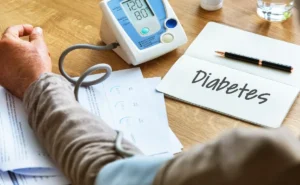Aging brings challenges to maintaining a healthy weight, but understanding the underlying factors allows for informed decision-making.
Weight gain as we age is no coincidence. Hormonal, metabolic, and lifestyle changes play a crucial role in this process. According to Dr. Rocío Salas-Whalen, an endocrinology and obesity specialist, understanding these causes is essential to implementing effective prevention and control strategies.
Several studies have shown the relationship between aging and weight gain. According to the Journal of Clinical Endocrinology & Metabolism (JCEM), approximately 65% of women gain between 2 and 5 kilograms during perimenopause.
A report from the National Institute of Public Health (INSP) reveals that 70% of women at this stage experience similar increases. The main reason: hormonal and metabolic changes that slow metabolism and redistribute body fat.
Obesity affects 46% of Mexican women between the ages of 30 and 59, according to the National Institute of Statistics and Geography (INEGI). This increase is related to decreased physical activity, changes in body composition, and hormonal imbalances.
Key factors that influence weight
Hormonal changes
Starting at age 30, the decline in growth hormone levels causes muscle loss and fat accumulation. During perimenopause and menopause, the drop in estrogen levels favors the accumulation of abdominal fat, which increases the risk of metabolic diseases.
Insulin resistance
Excess weight and hormonal imbalances can lead to insulin resistance, a precursor to type 2 diabetes. Studies by the Mexican Social Security Institute (IMSS) indicate that more than 35% of postmenopausal women in Mexico suffer from this condition.
Changes in body composition
Between the ages of 40 and 50, muscle mass loss accelerates, while visceral fat increases, contributing to the development of metabolic syndrome and cardiovascular disease.
Strategies to prevent and control weight gain
Balanced diet: Eating nutrient-dense foods, such as fruits, vegetables, healthy fats, and lean proteins, helps maintain an active metabolism.
Regular exercise: Incorporating resistance and cardiovascular exercises is crucial for maintaining muscle mass and reducing body fat.
Medical monitoring: Regular checkups can detect hormonal or metabolic imbalances and treat them promptly.
Stress Management: Chronic stress can disrupt hormonal regulation and contribute to weight gain.
Restful sleep: Sleeping between 7 and 8 hours a day helps regulate appetite-related hormones, such as leptin and ghrelin.























+ There are no comments
Add yours